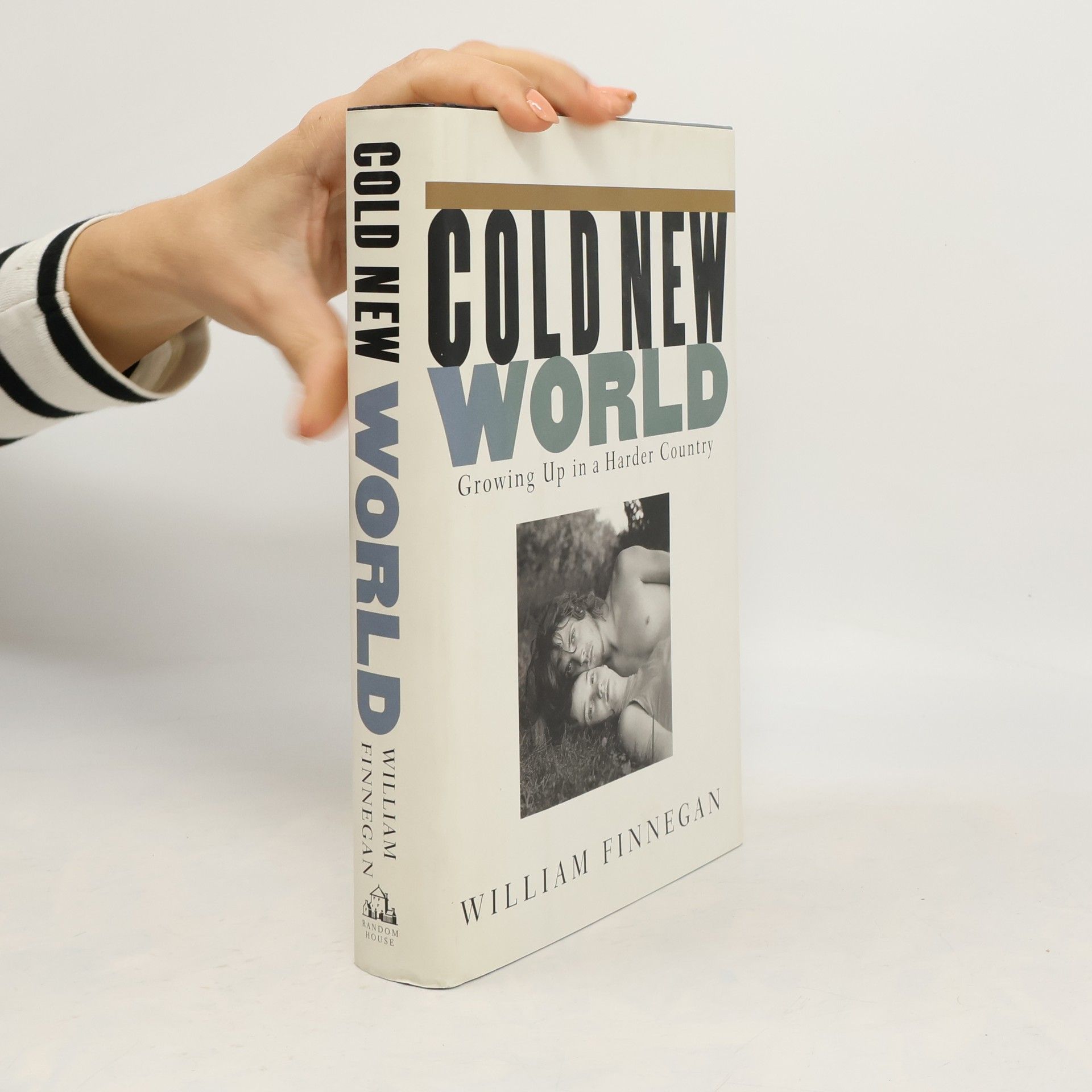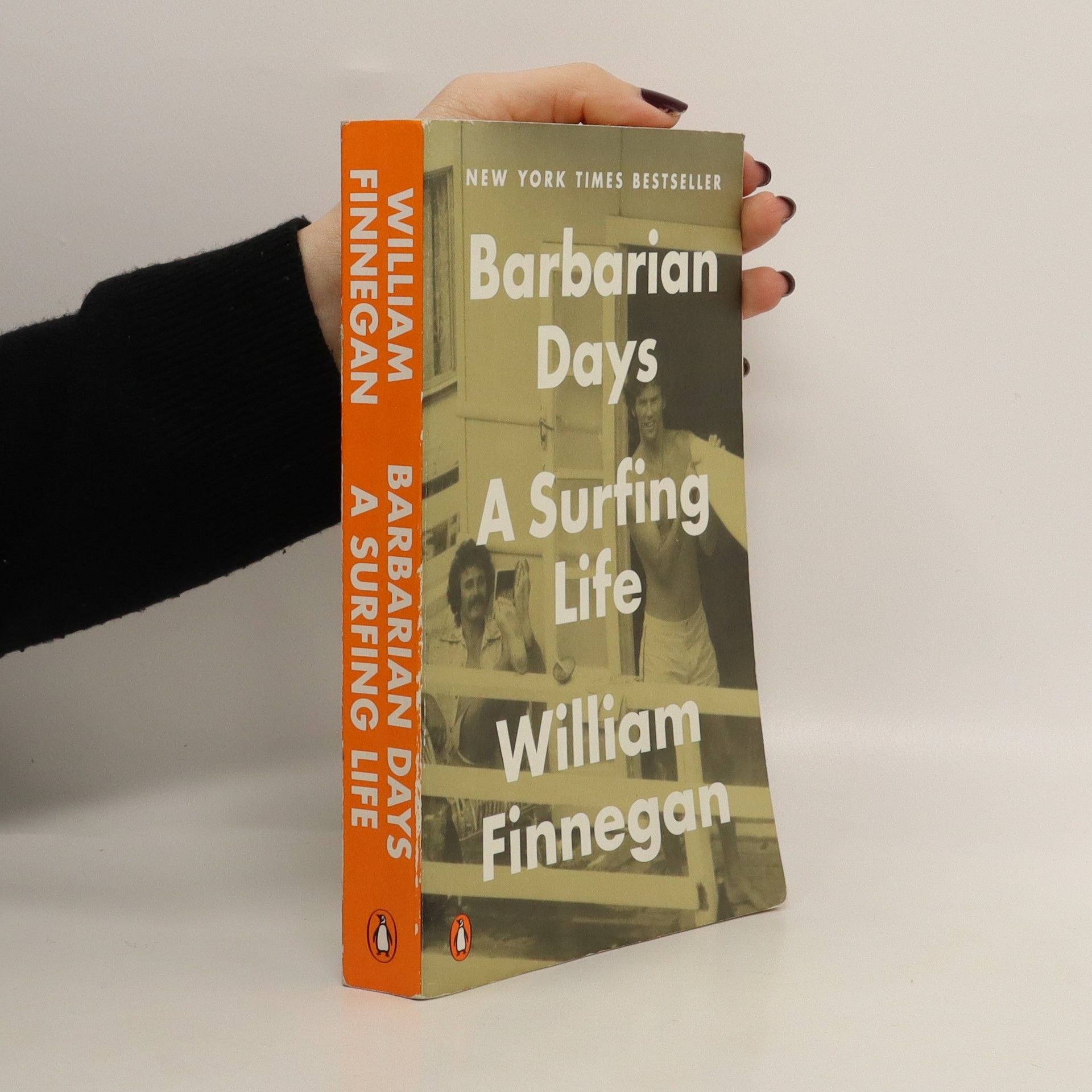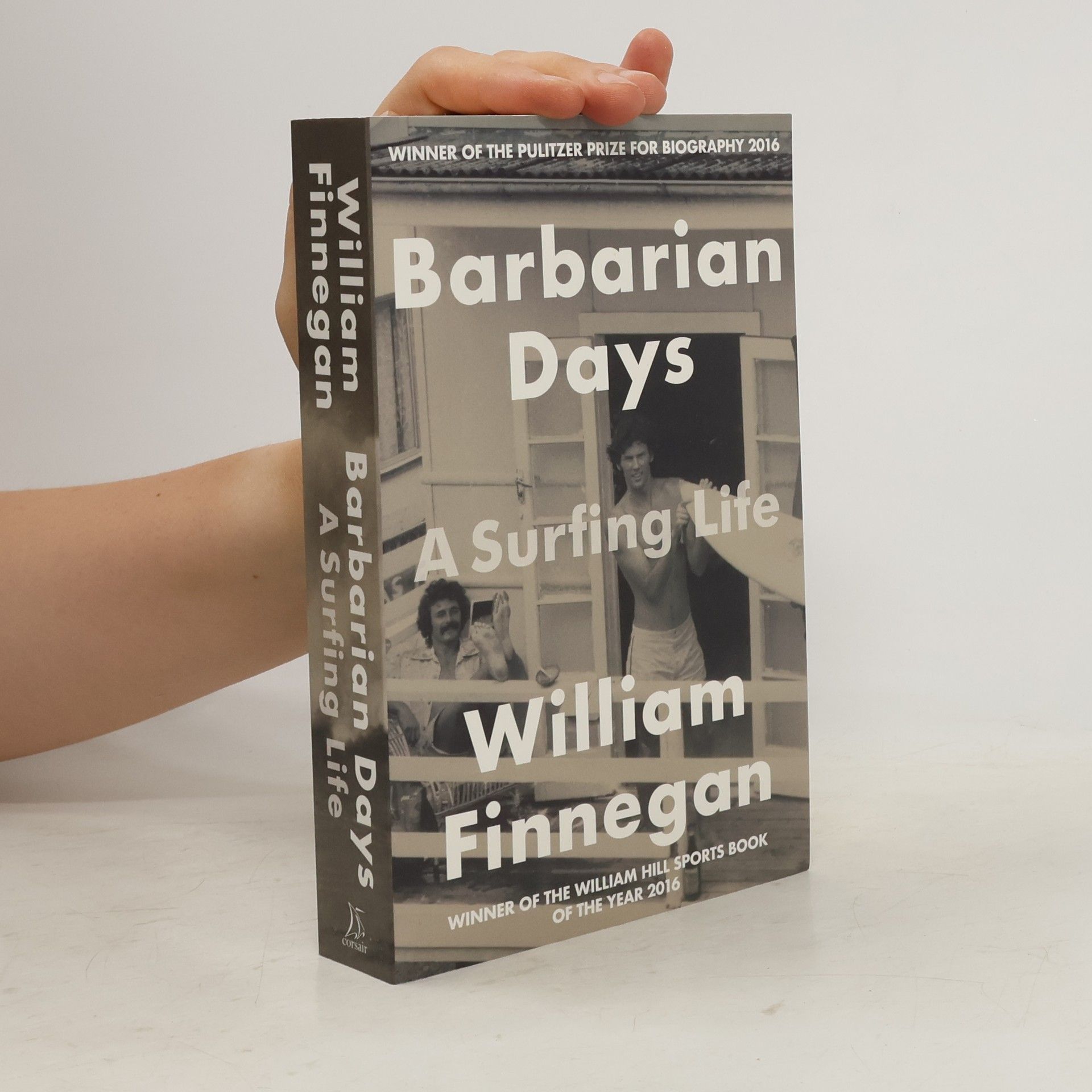WINNER OF THE PULITZER PRIZE FOR BIOGRAPHY 2016 WINNER OF THE 2016 WILLIAM HILL SPORTS BOOK OF THE YEAR PRIZE Surfing only looks like a sport. To devotees, it is something else entirely: a beautiful addiction, a mental and physical study, a passionate way of life. William Finnegan first started surfing as a young boy in California and Hawaii. Barbarian Days is his immersive memoir of a life spent travelling the world chasing waves through the South Pacific, Australia, Asia, Africa and beyond. Finnegan describes the edgy yet enduring brotherhood forged among the swell of the surf; and recalling his own apprenticeship to the world's most famous and challenging waves, he considers the intense relationship formed between man, board and water. Barbarian Days is an old-school adventure story, a social history, an extraordinary exploration of one man's gradual mastering of an exacting and little-understood art. It is a memoir of dangerous obsession and enchantment.
William Finnegan Livres
William Finnegan est rédacteur pour The New Yorker. Son travail se caractérise par une plongée profonde dans des sujets qui explorent souvent la relation complexe entre l'humanité et le monde naturel. Sa maîtrise stylistique réside dans sa capacité à lier la réflexion personnelle à des préoccupations sociétales et environnementales plus larges. À travers des descriptions précises et des observations perspicaces, il offre aux lecteurs une perspective unique sur le monde.






Barbarian Days: A Surging Life
- 464pages
- 17 heures de lecture
Surfing transcends mere sport; for enthusiasts, it embodies a beautiful addiction and a way of life. Raised in California and Hawaii, Finnegan began surfing as a child and spent years chasing waves across the South Pacific, Australia, Asia, and Africa. A bookish boy turned adventurous young man, he later became a writer and war reporter. His narrative delves into unfamiliar worlds, including the coasts of New York and San Francisco, and captures the edgy camaraderie of male friendships forged in challenging surf. Finnegan recounts experiences in a whites-only gang at a tough Honolulu school, while maintaining a close friendship with a native Hawaiian surfer. He reflects on the social upheavals of the 1960s that affected both kids and adults. His tales include the intricacies of famous waves and his personal journey to master them, blending youthful folly—like dropping LSD while surfing Honolua Bay—with rueful humor. Alongside a friend, he explores Polynesia, discovering one of the world's greatest waves while camping on a deserted island in Fiji. His travels take him deeper into the role of an unlikely anthropologist, examining the dynamics of a Samoan fishing village, the sexual politics in Tonga, and navigating Indonesia's black market while battling malaria. Throughout, he continues to surf.
Barbarian Days
- 447pages
- 16 heures de lecture
Surfing transcends mere sport; for enthusiasts, it embodies a beautiful addiction, a demanding pursuit, and a way of life. Finnegan, raised in California and Hawaii, began surfing as a child and has since chased waves worldwide, from the South Pacific to Africa. His journey unfolds through the lens of a writer and war reporter, revealing the edgy camaraderie of male friendships forged in challenging surf. He recounts experiences in a whites-only gang at a tough Honolulu school, alongside his close friendship with a native Hawaiian surfer. The narrative captures the upheaval of the 1960s, detailing the intricacies of famous waves and his own learning experiences. Youthful folly is humorously depicted, including a memorable LSD trip while surfing Honolua Bay. Alongside a friend, they navigate Polynesia with reef charts in tow, discovering one of the world's greatest waves on an uninhabited Fijian island. As his travels expand, Finnegan becomes an unlikely anthropologist, exploring the complexities of a Samoan fishing village, the sexual dynamics of Tongan interactions with foreigners, and the Indonesian black market, all while battling malaria. His adventures are punctuated by the thrill of surfing, highlighting the sport's profound impact on his life.
The Encyclopedia of Surfing
- 816pages
- 29 heures de lecture
Now in paperback and updated to include forty new entries, this "leviathan of surf literature" (Surfing magazine) is a remarkable collection of expert knowledge, spine-tingling stories, and little-known trivia. With 1,500 alphabetical entries and 300 illustrations, The Encyclopedia of Surfing is the most comprehensive review of the people, places, events, equipment, vernacular, and lively history of this fascinating sport by "one of surfing's most knowledgeable historians" (San Francisco Chronicle). Each year, the surf industry brings in $4.5 billion, and more than two-and-a-half million Americans, from California to Delaware, have caught the wave. The Encyclopedia of Surfing is a book that no surfer-or armchair adventurer-will be able to resist.
This groundbreaking work of social journalism highlights a population often overlooked. William Finnegan observes that while the national economy grows, the prospects for most Americans are dimming, leading to a new, harsher class structure. The focus is on families struggling to adapt, particularly their teenagers and young adults, as they navigate this challenging environment. Finnegan immerses himself in the lives of families across four American communities, capturing poignant portraits: a fifteen-year-old drug dealer in New Haven, a Texas town transformed by crack, Mexican American teens in Washington State caught between cultures and gang identities, and jobless young white supremacists in a declining L.A. suburb. This exploration of race, class, and social change maintains a deep respect for the humanity of its subjects. The young individuals portrayed are complex and multifaceted, evoking both sympathy and frustration. Finnegan's work transcends mere reportage, revealing the economic trends and political decisions that have contributed to a society marked by growing inequality and cultural alienation. Important and compassionate, this book offers a powerful glimpse into a present that foreshadows our future.
NAJLEPSZA KSIĄŻKA O SURFINGU, JAKA KIEDYKOLWIEK ZOSTAŁA NAPISANA Surfing to sport, lecz tylko dla tych, którzy przyglądają mu się z boku. Dla wtajemniczonych jest czymś znacznie więcej: pięknym nałogiem, wymagającym nauczycielem, niebezpiecznym zajęciem, sposobem na życie. Dni barbarzyńców to oldskulowa historia przygodowa, intelektualna autobiografia, literackie kino drogi, a także niezwykła eksploracja stopniowego doskonalenia wymagającej, mało rozumianej sztuki, jaką jest surfing. W pogoni za falą łatwo jest rzucić wszystko Ale czy jesteś na to gotowy? William Finnegan (ur. 1957) amerykański pisarz i korespondent wojenny, wieloletni publicysta New Yorkera. Laureat licznych nagród dziennikarskich za teksty o konfliktach w różnych rejonach świata. W nagrodzonych Pulitzerem Dniach barbarzyńców składa hołd swojej największej pasji, jaką jest surfing, oraz zdaje intymną relację z życia, którego rytm podyktowały fale. Zapierająca dech w piersiach. The New York Times Dzieło sztuki. Geoff Dyer, The Observer Olśniewająca. Los Angeles Times Wymieniona na liście wakacyjnych lektur Baracka Obamy. Zdobywca Nagrody Pulitzera w kategorii Autobiografia. Powyższy opis pochodzi od wydawcy